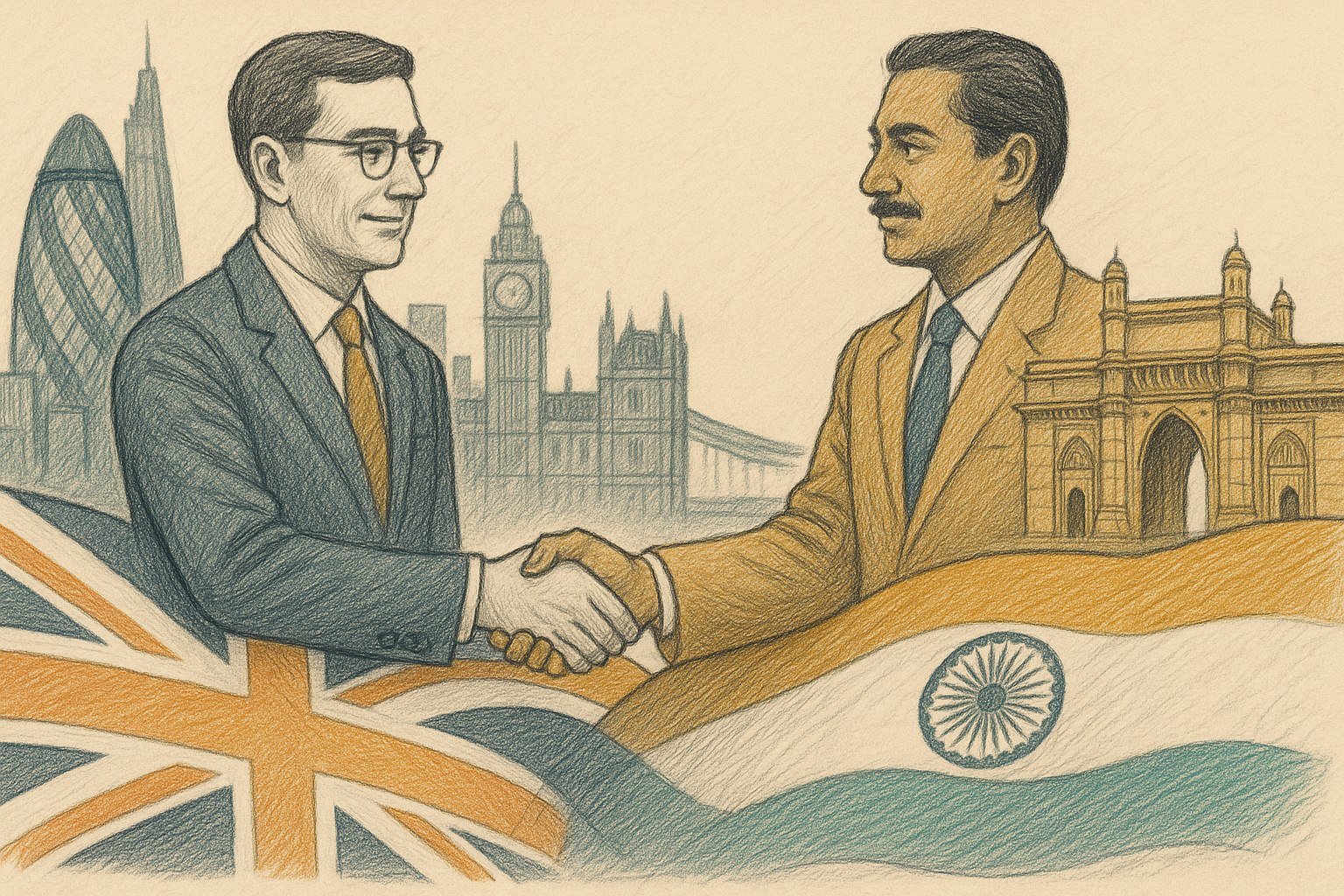The UK and India have concluded a wide-reaching free trade agreement (FTA) that ministers say could raise bilateral trade by £25.5 billion a year by 2040. Announced on 6 May, the deal will also add £4.8 billion annually to UK GDP, according to official figures.
Under the terms of the agreement, India will remove duties on 90 per cent of UK goods exports, including a staged reduction of its whisky import tariff from 150 per cent to 30 per cent over three years. Tariffs on UK car exports to India will fall to 10 per cent within quotas. In return, the UK will remove tariffs on 99 per cent of Indian goods, including textiles and gemstones.
Prime Minister Sir Keir Starmer said the deal would “deliver for British people and business,” while Indian Prime Minister Narendra Modi described the agreement as “ambitious and mutually beneficial.”
The services chapter of the agreement includes provisions on professional mobility and access to India’s public procurement markets. Speaking at the India Global Forum in London, India’s commerce minister Piyush Goyal said the two economies were “very complimentary” and pointed to finance, education, insurance, and pharmaceuticals as sectors that could “gain.”
The Scotch Whisky Association called the deal “transformational,” noting India is the industry’s largest market by volume. British exports of Scotch whisky to India were valued at £1.6 billion in 2024. The Confederation of British Industry described the trade pact as a “beacon of hope amidst the spectre of protectionism.”
Implementation is expected to take over a year. Indian officials say formal signing will take place after three months, followed by legal checks and parliamentary approval in both countries. A parallel bilateral investment treaty is still being negotiated, and carbon border tax arrangements were left for future discussions.
The deal is the most economically significant free trade agreement signed by the UK since leaving the EU in 2020. Officials expect the agreement to support smoother customs procedures, greater regulatory certainty, and improved access to a rapidly growing Indian consumer base.




